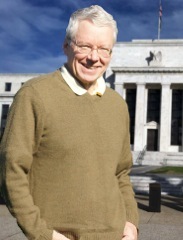 Mark de Castrique is a film and video producer whose work has aired on PBS, HBO and network-affiliate stations. He is the author of the Sam Blackman mystery series, the Buryin' Barry series and two mysteries for young adults. He lives in Charlotte, N.C. The 13th Target, de Castrique's first stand-alone thriller, was published by Poisoned Pen Press on July 3, 2012.
Mark de Castrique is a film and video producer whose work has aired on PBS, HBO and network-affiliate stations. He is the author of the Sam Blackman mystery series, the Buryin' Barry series and two mysteries for young adults. He lives in Charlotte, N.C. The 13th Target, de Castrique's first stand-alone thriller, was published by Poisoned Pen Press on July 3, 2012.
On your nightstand now:
Maps of the Imagination: The Writer as Cartographer by Peter Turchi--I'm enjoying this fresh perspective on the writing process and its relationship to map-making. Both are finding the way into and through the unknown. Sister Bernadette's Barking Dog: The Quirky History and Lost Art of Diagramming Sentences by Kitty Burns Florey--I know. I sound pathetically boring. What can I say? I bought this book out of gratitude to my junior high teachers who forced sentence diagramming upon me. Decades later I realize what a treasure those exercises were. Red Shift by Alan Garner--this complex YA novel occurs simultaneously during three time periods in England: the Roman conquest, Cromwell's Civil War and the late 20th century. Geographical location and a stone axe head link the characters across time. I'm realizing it isn't a book to pick up and put down, but requires concentration. The nightstand probably isn't the best approach to appreciate the story.
Favorite book when you were a child:
I went through so many different reading stages. I liked the Jack stories to be read to me. Then at an early age I read The Hardy Boys. In junior high, when not diagramming sentences, I discovered Sherlock Holmes and ripped through the canon in a few months.
Your top five authors:
Tough question. I'll limit the list to favorites of 20th-century genre fiction: Isaac Asimov, Philip K. Dick, Dashiell Hammett, Patricia Highsmith and John le Carré.
Book you've faked reading:
Gravity's Rainbow by Thomas Pynchon. I guess I don't have the literary chops to get into it. I wound up skimming the end.
Book you're an evangelist for:
The Keena Ford series, first chapter books geared toward inner city children and written by my daughter Melissa Thomson. Hey, what Dad would say anything else?
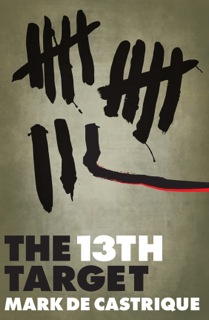 Book you've bought for the cover:
Book you've bought for the cover:
Any Mickey Spillane Mike Hammer. Do you have to ask why?
Book that changed your life:
Books constantly shape my life, so it's a matter of choosing the point in time. This question made me think about how I became an English major in college. I'd placed out of all my requirements except a second-year English lit credit. I thought I'd get that course over first semester freshman year and focus on my math degree. One of the works we read was Milton's Paradise Lost. Most of the class hated it. I loved it. The sheer scope of what Milton created with the epic was amazing. The next semester I didn't take an English class, hated my math class and realized a new meaning for Paradise Lost. I found my way back into the fold, earned a B.A. in English, and 30 years later, returned for my Master's.
Favorite line from a book:
"My receipt," Lucas said. It's the last line of Faulkner's Intruder in the Dust when Lucas Beauchamp has just paid his legal fee in pennies. He stands "intractable and calm" in front of lawyer Gavin Stevens. Exasperated, Stevens asks, "What are you waiting for?" It's probably also the shortest sentence in the book. A few pages earlier, Faulkner interrupts the simple description of Lucas rising from his chair by inserting a parenthetical sentence stretching over two pages. I'd like to see Sister Bernadette's diagram of that convoluted maze of clauses.
Book you most want to read again for the first time:
The Lord of the Rings. Discovering the inventiveness of the Middle-earth landscapes, characters and worldview was a remarkable reading experience.
 "Every independent bookstore is facing challenges right now. It affects your marketplace, but it doesn't have to kill you. You don't open a bookstore to make a million dollars.... I don't think customers should have to rescue us. It sounds too desperate. I don't think we're in that position and I don't think that attitude is helpful.... People still really like to hold a book in their hands. We provide service to a market of intelligent people. Even with e-readers and competition from the big chains, we'll do OK."
"Every independent bookstore is facing challenges right now. It affects your marketplace, but it doesn't have to kill you. You don't open a bookstore to make a million dollars.... I don't think customers should have to rescue us. It sounds too desperate. I don't think we're in that position and I don't think that attitude is helpful.... People still really like to hold a book in their hands. We provide service to a market of intelligent people. Even with e-readers and competition from the big chains, we'll do OK."


SHELFAWARENESS.1222.S1.BESTADSWEBINAR.gif)


SHELFAWARENESS.1222.T1.BESTADSWEBINAR.gif)
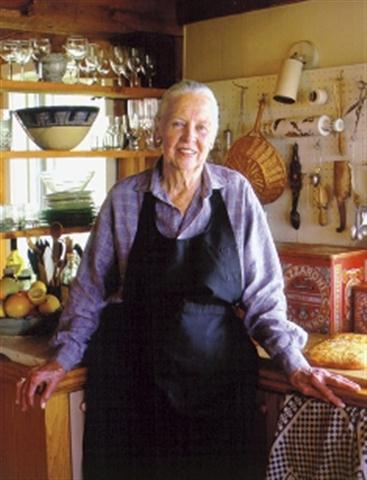 Marion Cunningham
Marion Cunningham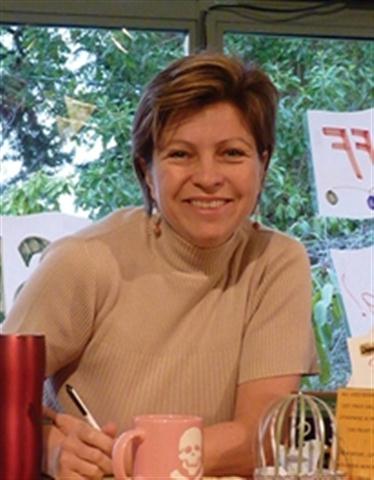 Congratulations to
Congratulations to 
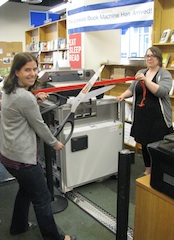
 "Why not spend your Sunday biking to bookstores across the city as part of a bookstore bike crawl?" asked the Chicagoist regarding this weekend's
"Why not spend your Sunday biking to bookstores across the city as part of a bookstore bike crawl?" asked the Chicagoist regarding this weekend's 
 Twelve Patients: Life and Death at Bellevue Hospital
Twelve Patients: Life and Death at Bellevue Hospital Lionsgate will release the film version of
Lionsgate will release the film version of  Mark de Castrique is a film and video producer whose work has aired on PBS, HBO and network-affiliate stations. He is the author of the Sam Blackman mystery series, the Buryin' Barry series and two mysteries for young adults. He lives in Charlotte, N.C. The 13th Target, de Castrique's first stand-alone thriller, was published by Poisoned Pen Press on July 3, 2012.
Mark de Castrique is a film and video producer whose work has aired on PBS, HBO and network-affiliate stations. He is the author of the Sam Blackman mystery series, the Buryin' Barry series and two mysteries for young adults. He lives in Charlotte, N.C. The 13th Target, de Castrique's first stand-alone thriller, was published by Poisoned Pen Press on July 3, 2012. Book you've bought for the cover:
Book you've bought for the cover: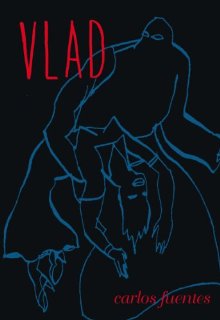 You expect a literate feast from Carlos Fuentes, but you probably would not have expected him to reanimate the classic vampire genre in Vlad, a playful but genuinely creepy sequel to Bram Stoker's Dracula. The 40-something lawyer narrator, Yves Navarro, is summoned by his housebound elderly employer to take on a new client from an old Central European family. Count Vladimir Radu is almost 90 years old, with a 10-year-old daughter. He dresses entirely in black, wears a toupee, a fake mustache and sunglasses. He's looking for a remote house far away from everyone, with all the windows blacked out and a secret tunnel.
You expect a literate feast from Carlos Fuentes, but you probably would not have expected him to reanimate the classic vampire genre in Vlad, a playful but genuinely creepy sequel to Bram Stoker's Dracula. The 40-something lawyer narrator, Yves Navarro, is summoned by his housebound elderly employer to take on a new client from an old Central European family. Count Vladimir Radu is almost 90 years old, with a 10-year-old daughter. He dresses entirely in black, wears a toupee, a fake mustache and sunglasses. He's looking for a remote house far away from everyone, with all the windows blacked out and a secret tunnel.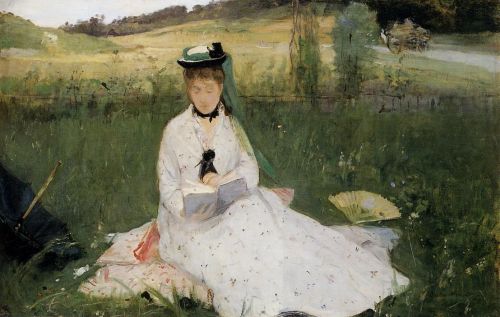 "It is a well-established tradition that reading for the summer must consist of fiction, or other forms of what is called light literature," wrote
"It is a well-established tradition that reading for the summer must consist of fiction, or other forms of what is called light literature," wrote